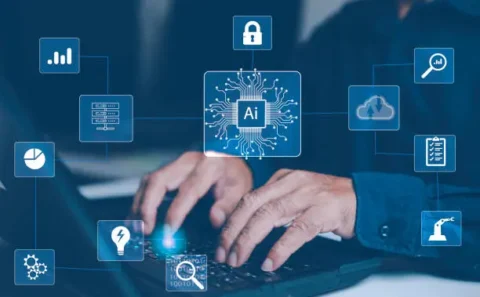Photo by Campaign Creators on Unsplash
In today’s digital age, forensic data collection has become a crucial component of the legal process. With an increasing amount of data being generated every second, understanding how to store critical evidence can make or break a legal case. This blog explores the intricacies of forensic data collection and its importance in protecting and presenting vital information in court. Whether you’re a legal professional, a forensic analyst, or someone interested in the intersection of technology and law, this guide will offer insights and practical tips to enhance your knowledge and skills.
Understanding Forensic Data Collection
Forensic data collection is the process of gathering digital evidence from various sources, such as computers, mobile devices, or online platforms, to be used in legal cases. It requires meticulous attention to detail to ensure the integrity and authenticity of the data. Collecting data for legal purposes involves following strict procedures to prevent tampering or data loss, making it a complex yet essential task in modern litigation.
The rise of digital technology has expanded the scope of forensic data collection, encompassing everything from emails and text messages to social media posts and cloud-stored files. Consequently, legal teams must collaborate closely with forensic experts to ensure that they handle data correctly, preserving its admissibility in court.
The Role of Technology in Modern Forensics
Technology plays a pivotal role in modern forensic data collection. Advanced tools and software enable forensic specialists to extract and analyze data efficiently, providing crucial insights for legal cases. These tools help professionals sift through vast amounts of data to identify relevant information, saving time and resources while ensuring accuracy.
With the advent of artificial intelligence and machine learning, the future of forensic data collection looks even more promising. These technologies can automate many processes, reducing human error and increasing the speed at which data is processed. However, it’s essential to balance technological advancement with ethical considerations, ensuring that privacy and legal standards are maintained throughout the investigation.
Legal Considerations in Data Collection
The legal landscape surrounding forensic data collection is complex and continually evolving. Professionals involved in the process must stay updated on relevant laws and regulations to ensure compliance and protect the rights of individuals involved in the case. Failure to adhere to these legal standards can result in evidence being deemed inadmissible in court, undermining the entire case.
One key consideration is obtaining the necessary warrants or permissions before collecting data, especially when dealing with sensitive information. Additionally, understanding the rules of evidence and how they apply to digital data is crucial for presenting a compelling case in court. Collaborating with legal experts who specialize in digital law can provide valuable guidance in navigating these challenges.
Preserving the Integrity of Evidence
Maintaining the integrity of collected data is paramount in forensic investigations. Any alteration, intentional or accidental, can compromise the evidence’s validity and jeopardize the outcome of a legal case. Therefore, professionals must implement stringent protocols to protect data throughout the collection, storage, and analysis phases.
Chain of custody is a fundamental concept in preserving evidence integrity. This involves documenting every step of the data collection process, including who accessed the data, when, and for what purpose. By maintaining a clear record, legal teams can demonstrate the data’s authenticity and reliability, increasing its credibility in court.
Best Practices for Storing Digital Evidence
Storing digital evidence securely is as important as collecting it. With the increasing sophistication of cyber threats, legal teams must prioritize robust security measures to protect sensitive data. This includes using encryption, implementing access controls, and regularly backing up data to prevent unauthorized access or loss.
Cloud storage solutions offer an efficient way to store large volumes of data, but they also come with unique challenges. Legal professionals must assess the security protocols of cloud providers and ensure compliance with relevant data protection regulations. By taking these precautions, they can safeguard critical evidence and maintain client confidentiality.
Challenges in Forensic Data Collection
Forensic data collection is not without its challenges. The sheer volume of data generated daily can overwhelm legal teams, making it difficult to identify relevant information. Additionally, the rapid pace of technological change means that professionals must continuously update their skills and tools to keep up with new developments.
Another challenge is balancing the need for comprehensive data collection with privacy concerns. Forensic experts must tread carefully to avoid infringing on individuals’ rights while gathering evidence. By establishing clear guidelines and adhering to ethical standards, professionals can address these challenges effectively.
Forensic Tools and Techniques
Numerous tools and techniques are available to aid forensic data collection. These range from software that automates data extraction to specialized hardware for accessing encrypted devices. Choosing the right tools requires careful consideration of the case’s specific needs and the available resources.
Training and expertise play a critical role in maximizing the effectiveness of forensic tools. Professionals must understand how to operate these tools and interpret the results accurately. Continuous education and staying abreast of industry trends are essential for maintaining proficiency in this dynamic field.
The Intersection of Forensics and Mental Health EMR
An emerging area of forensic data collection involves electronic medical records (EMR), particularly in cases where mental health is a factor. Accurate and ethical handling of mental health EMR can provide valuable insights into a case, highlighting the need for specialized knowledge and sensitivity.
Legal teams must collaborate with healthcare professionals to understand the nuances of mental health EMR and ensure compliance with healthcare regulations. By integrating these records into forensic investigations, legal professionals can build a more comprehensive case while respecting patient confidentiality.
Building a Collaborative Forensic Team
Successful forensic data collection relies on collaboration between legal teams, forensic experts, and other stakeholders. By fostering open communication and establishing clear roles, organizations can streamline the data collection process and enhance their overall effectiveness.
Regular training sessions and workshops can help team members stay updated on the latest forensic techniques and technologies. Encouraging a culture of continuous learning ensures that the team remains agile and adaptive, ready to tackle any challenges that arise during an investigation.
The Future of Forensic Data Collection
The future of forensic data collection is bright, with technological advancements paving the way for more efficient and accurate processes. However, staying ahead of the curve requires continuous investment in research, training, and collaboration. Legal teams and forensic experts must work together to harness the potential of emerging technologies while maintaining ethical standards.
Conclusion
Forensic data collection is a critical component of modern legal cases, offering invaluable insights and evidence. By understanding the intricacies of this process and staying informed about the latest developments, professionals can enhance their skills and contribute to successful legal outcomes. Whether you’re a seasoned expert or just starting your forensic career, the key to success lies in continuous learning, collaboration, and ethical practices.





